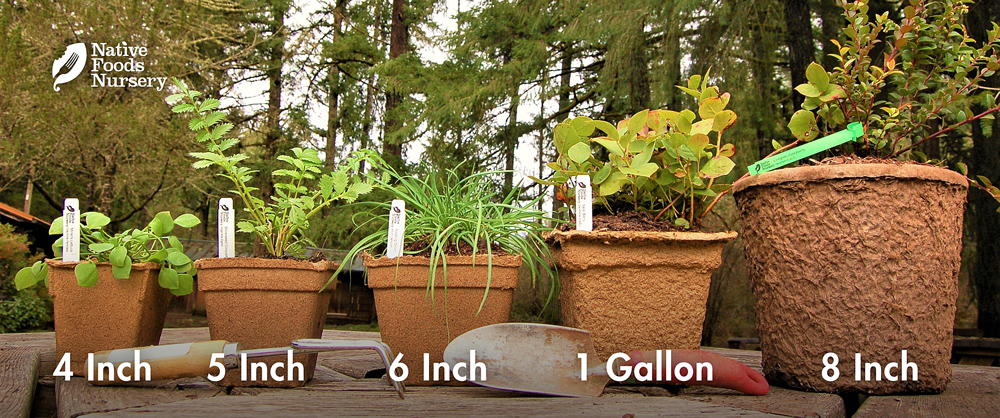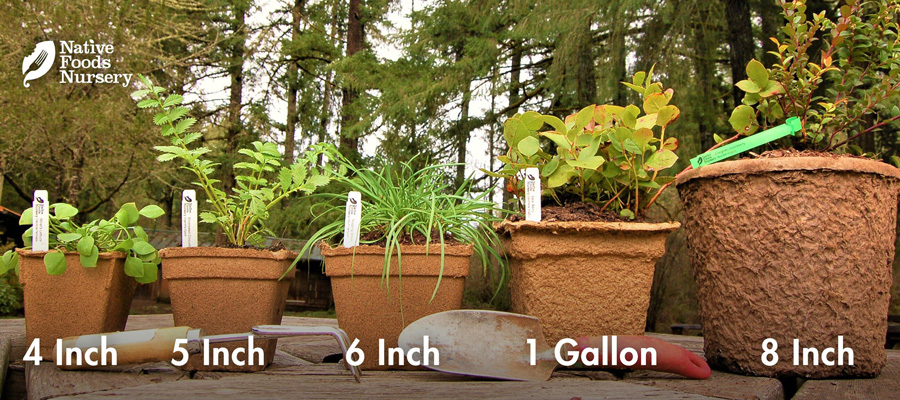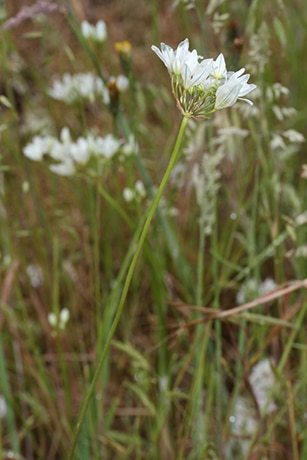Fool's Onion
- Current Stock:
- 0
- Other Names:
- White Brodiaea, White Tripletlily
- Latin Name:
- Triteleia hyacinthina
Fool's Onion is a beautiful white wildflower with a sweet, edible corm.
NOTE: Our native lillies naturally go dormant by June or July of each year. If you order them after that time, you'll have to wait until spring for additional growth and flowers.
Edible Uses
Fool's Onion is a perennial wildflower that is native to the Pacific Northwest. This native food has edible corms that have a delicious allium flavor. They can be eaten raw or cooked in any way that you would use an onion - in soups, stir fries or raw on salads.
***WARNING: Fool's Onion can be confused with death camas, a highly toxic wildflower. Always be sure that you have properly identified what you are harvesting and eating.
Ornamental Qualities
Fool's Onion is a gorgeous ornamental wildflower and is often used as a cut flower. The stalks terminate in a cluster of upwards facing umbels. Each stalk has between 10 to 40 fragrant, white, star shaped flowers. The flowers are often tinged purple along their throat, with six green-veined tepals. There are six stamens with white, yellow, or occasionally blue anthers.
Environment and Culture
Fool's Onion grows in moist environments all over the Pacific Northwest. They can be found in wet meadows and woodlands and growing in vernal pools. In the last 150 years, since the arrival of Western settlers in the region, Fool's Onion has been greatly diminished by disruptive modern agricultural practices, removal of native peoples, and extensive urban development.
If you have a seasonally wet location in your yard, consider growing Fool's Onion. Once established they will need little attention and can tolerate seasonal drought and flooding and come back every year to provide delicious corms and beautiful blooms. Fool's Onion will grow well under open canopy moisture tolerant trees like Red Alder and Oregon White Oak and alongside other water loving herbs like Water Parsnip.
Northwest Native American tribes today still value this special plant as food, medicine, and family. Despite great cultural losses, they continue to work towards stewarding and restoring wild populations, both strengthening the integrity of the ecology and sustaining their cultural heritage and wisdom. These strong and recovering peoples and plants deserve our respect, gratitude, and reparations. (Learn more & how to help on our Charitable Giving page.)
Harvest, Care, and Preparation
The corms can be harvested in April before flowering. Fool's Onion propagates by growing new corms around the older corms. To maintain your stand only harvest the biggest corms and replant the smaller ones to increase harvests every year. To best prepare Fool's Onion, remove the outer skin and boil the corms for about half an hour, or bake for two hours at 300 degrees. Larger bulbs may require more cooking. They can be fried, salted and peppered, and served as little homegrown appetizers. Or, they may be mashed when soft, formed into cakes, and deep-fried or frozen.
Native Range: CA, OR, WA, ID, BC
USDA zones: 6-9
Ease of Care: Easy
Deer Resistance: Medium
Light Requirements: Full Sun-Part Shade
Soil Type: Any
Water Requirements: Moist to wet, can tolerate seasonal dryness
Pollination: Self Fertile
Bearing Age: 3 years from seed
Size at Maturity: 1 Foot
Bloom Time: May-June
Harvest Time: Spring-Fall
Pot Sizing Guide











